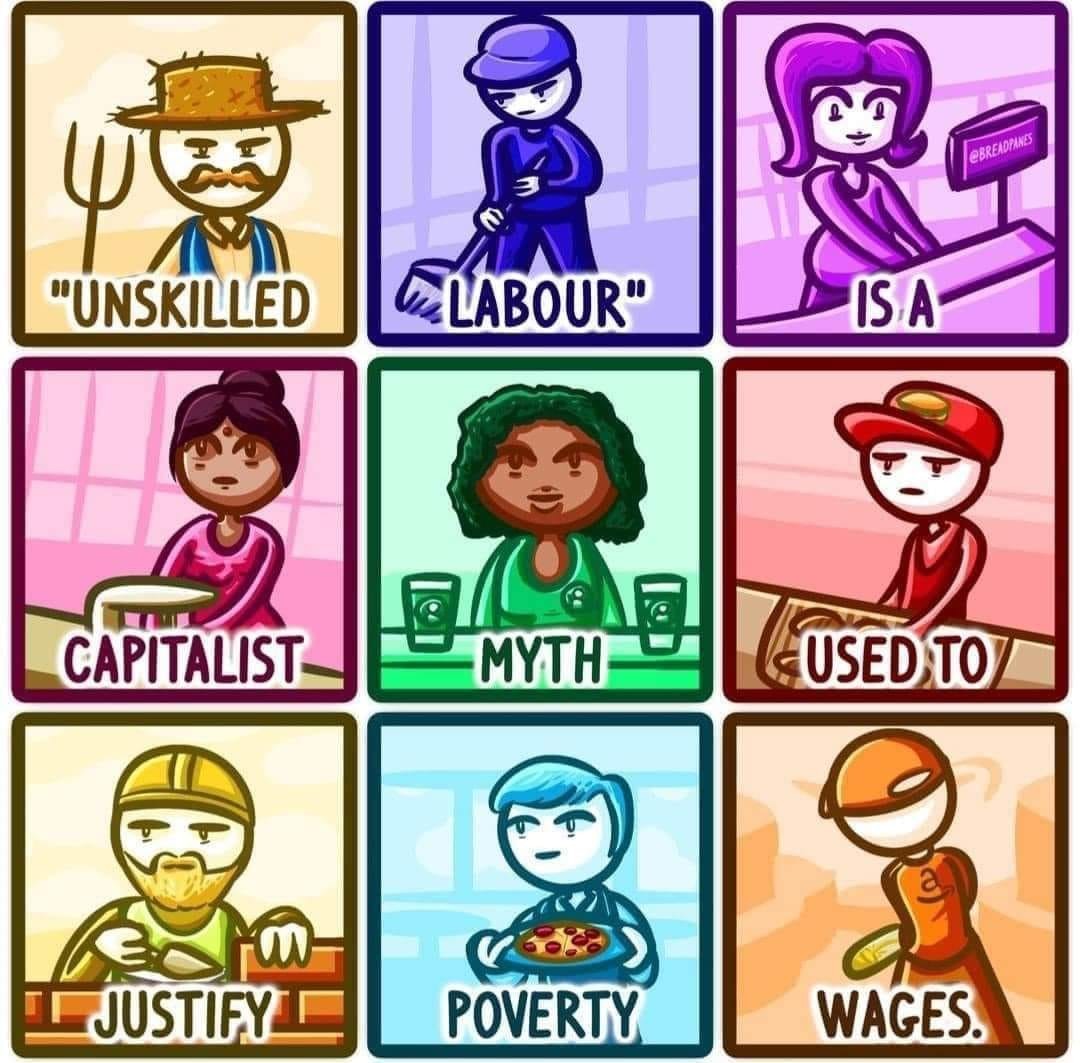this post was submitted on 21 Jan 2024
636 points (88.1% liked)
unions
1566 readers
3 users here now
founded 2 years ago
MODERATORS
you are viewing a single comment's thread
view the rest of the comments
view the rest of the comments

Getting better at something you picked up in a month is not the same as needing years of training to even begin.
Experience is the opposite of the problem. The concept distinguishes jobs where people are fundamentally incapable of performing the task to bare-minimum standards, until they've been thoroughly educated, tested, and prepared. A doctor doing their first surgery has zero prior experience. It's their first. But they are already an expert, in some capacity, thanks to abundant theory and practice.
Again: no kidding all jobs take skill. No kidding you can get better at things. But an experienced bartender does not make tending bar "skilled labor" so long as any line cook could be pressganged into it while that guy takes a dump.
And then he messes up the CO2 and the bar cannot serve for ten minutes, losing them plenty of money.
More importantly though, the concepts are not just distinguished like that. For the "skilled" labor, it is normal and expected, that experience is paid. People whose job description reads "senior" often make 30-50% more than what people who are considered "junior"s make, even though the education is the same. But this is not done in this way for the supposed "unskilled" labor, even though the productivity and hence the value of the labor to the employer does increase just as equally with experience on the job.
Finally, i work as an engineer. Quite frankly most of what the people in a typical corporate setting do, could be done with on the job training perfectly fine. The positions were specific knowledge is required from higher education are not only limited in number, but also in scope. As a result you could also train these in maybe half a year. And if i ask older colleagues about stuff from their studying time they usually just laugh, because they've forgotten most of it.
Oh no, losing money! Surely that's the same kind of problem as killing people.
You're not really listening.
Looks like you are driving a train you are not skilled for, with your derailing.
Employers pay employees money in exchange for work. That is the fundamental principle of wage labour. In a fair situation the employee's wage reflects the value he provides to the company. This is denied to so called "unskilled" labour. You also want to deny it by overexpanding your example. Yes a doctor requires a lot of prior education. But if you think a surgeons first operation is on a live human, you are wrong. They train surgeries beforehand. Because with all the education, if the hands remained unskilled an educated doctor is still a deadly surgeon. On the flipside for a standard surgery it would be perfectly possible to train a nurse how to do it, and merely have a doctor supervise for unforseen medical aspects. And again, ask a knee surgeon after 20 years about heart diseases. Ask a cardiologist about knee surgeries. Both will have forgotten most of it.
But finally your arguement of killing people is a hyperbole. Do you know how many people die as the result of "unskilled" labor fucking up? The most deadly occupations like logging, farming, mining and construction are all requiring responsibility for protection of your own and other humans lifes, where proper experience and skill are crucial to maintain safety.
So while you talk about hypothetical unskilled doctors, the denial of skill needed in many occupations is actually killing people.
Read what I fucking wrote or don't talk to me.
I think you didnt get the point. The act of surgery itself is akin to a skilled bricklayer. It is a craft that is improved by experience primarily and all the best grades and knowledge in the theoretical parts cannot guarantee that someone will be a good surgeon, if they lack the talent for the hands on part.
The point is that bad bricklayers still get to lay bricks, and it's not a huge deal. Any rando can do a half-ass job and in many situations that's just fine. Surgery never works like that. There are no some-guy-with-a-van... hospitals. You can't fake your way through an appendectomy with a Youtube video and seven trips to Home Depot.
For the final time: no shit experienced tradesmen have significant skills. That's never what this label is about. Experience is the polar opposite of the problem. You landed right on the actual issue, whilst chiding me for something you imagined I missed: "skilled labor" is when you require immense training, beforehand.
The concept being addressed is not skill or labor. It's skilled labor. Auf Deutsch, it'd be a compound word. You can't separate the components of that label and pretend you're still talking about the same fucking thing.